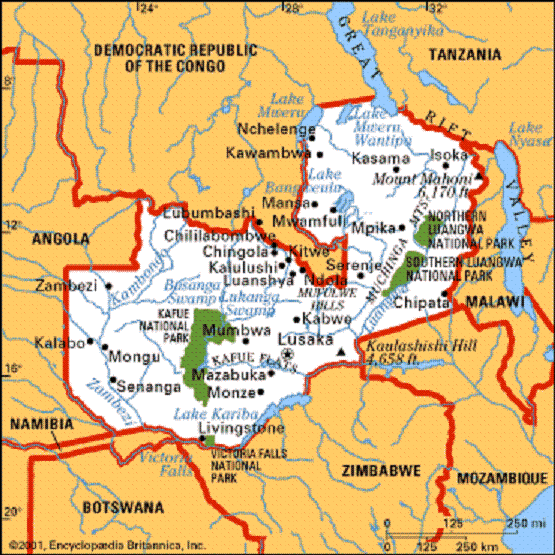I have made it to Zambia. Actually, I have been here for almost 2 months, but have been a little too lazy to make the effort to get
internet access. Anyhow, I have been in training near Lusaka since mid-February so I will start at the beginning. After a few days at
ISTT for orientation we were sent to first sight visit. I visited a life volunteer, Anna, in central province where we spent 3 nights with her and 2 RED volunteers, the education group, who have been in Zambia for a year now. We were introduced to village life which consists of learning how to survive everyday life without running water and electricity. Our first nights sleep was
interrupted by heavy rains finally returning after a 2 week absence. We went to a beekeepers meeting and saw the different hives used in
Zambia. The trip was an amazing experience and only fueled my desire to be here. Upon returning to
Lusaka, everyone was eager to share their experiences. Some groups saw dances celebrating the full moon, other ate
nshima with the chief. All unique and wonderful stories. The next day we were dropped off at our
homestays where we will stay until
we are placed in our villages in May. I now live in K
akobe village and am learning B
emba. My
ba maayo and ba taata have 8 children and 20 grandchildren. The land they live
on was given to the father of
ba taata by the chief. I meet new
family every day and have trouble knowing who is a part of the family and who is just visiting. I have begun training which was exhausting at first due to
the intensive language courses
followed by an 8 km bike ride to
our training center and more
nshima than you would wish upon anyone. I
have now adjusted to the food, biking and language and am getting to
know my family. Ba
maayo is catholic and I went to mass the first S
unday. The service was in N
yanja, another common language in Zambia.
It was 3 hours long. The music was beautiful,
needless to say, I
didn't return the following week. Three of the
granddaughters Jen,
Olivia, and
Maggie who are 13, 11 and 8, respectively, do much of the household chores. They teach me how to wash my clothes, sweep, gather water and cook. I spent much of PACA day with them learning to make nshima, and play various games that mirrored duck, duck, goose and dodgeball. Every thursday we have medical and cultural training where we are poked with another needle and taught about the various parasites, insects and diseases waiting to interupt our time in the village. I am currently in Northern Province where I will spend plenty of quality time over the next two years. I have just visited my village named Chimba, 60k northeast of Kasama. It is a beautiful area with wetlands and forest. The family compound that I will live in has three families that appear very eager to work with me. I even have my namesake, Monica, as a neighbor and fellow farmer who I look forward to working with soon. I have a grandmother at my site who is a character enough to keep me entertained for two years. She always asks to borrow something, today it was salt and perhaps some money for a fanta, although she goes in and out of Bemba, Swahili and random bouts of screaming. There is a lovely RED volunteer close to me who has showed me the ropes of village life in Chimba and is building a theater dedicated to HIV/AIDS education and awareness. Most importantly, she is starting a women's soccer league that will certainly give me plenty to do in my down time. I am replacing a RAP volunteer (from the aquaculture/fish pond group) who was very active in the community, excellent at Bemba and who constantly ate nshima with the family. I will try to live up to the standards of the first two that she has left behind, although I do not know if I will ever learn to love and eat nshima as the Zambians do. At this point, the community seems to be interested in environmental education, beekeeping, and diversifying crops. Anything to lessen their reliance on fertilizers for maize and their dependence on government subsidies for support. Hopefully, I can get a little done in the next two years to help out my village!



